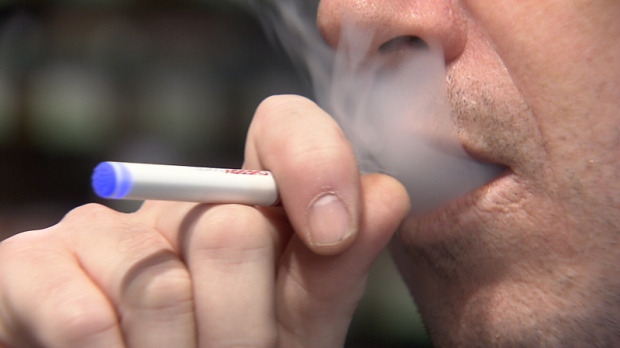E-cigarettes seem to be everywhere these days, and a new study finds many U.S. doctors recommending them to smokers as a way to kick the tobacco habit.
“Even in the absence of evidence regarding the health impact of e-cigarettes and other vaping devices, a third of physicians we surveyed are recommending e-cigarettes to their patients to help quit smoking,” study co-author Leah Ranney, associate director of the Tobacco Prevention and Evaluation Program at the University of North Carolina, said in a university news release.
The researchers cautioned, however, that more research is needed to determine if e-cigarettes are safe and if they actually help people to stop smoking.
E-cigarettes work by turning various concentrations of nicotine, flavorings and other chemicals into a vapor that can be inhaled — a process also known as “vaping.” Most of the nicotine in e-cigarettes enters the bloodstream through the soft tissue in users’ cheeks, not their lungs. The safety and effectiveness of e-cigarettes, however, remains unclear.
In conducting the study, published online July 29 in the journal PLOS ONE, Ranney and her colleagues randomly selected 128 doctors in North Carolina and asked them about their attitudes towards e-cigarettes.
The researchers found that two-thirds of the doctors believed the devices could be a useful tool to help people quit smoking. In fact, 35 percent said they had recommended e-cigarettes to their patients.
However, “e-cigarettes are not approved by the [U.S. Food and Drug Administration] for smoking cessation,” Ranney said. She suggested that “physicians should refrain from recommending e-cigarettes until more is known about their safety.”
Doctors were more likely to recommend e-cigarettes if their patients asked about them or if they believed these products were safer than smoking regular cigarettes.
The study authors cautioned that some doctors may have conflicting information about the safety of e-cigarettes. Among those polled, 13 percent were unaware that e-cigarettes are not FDA-approved.
Study co-author Dr. Adam Goldstein, a University of North Carolina family medicine physician, noted in the news release that “physicians may choose to use FDA-approved medications rather than devices and products not approved by FDA.”
The study was funded by the U.S. National Cancer Institute and the North Carolina Department of Health and Human Services.
Source: webmd




 At the Henley Vaporium, one of a growing number of e-cigarette lounges sprouting up in New York and other United States cities, patrons can indulge in their choice of more than 90 flavours of nicotine-infused vapour, ranging from bacon to bubble gum.
At the Henley Vaporium, one of a growing number of e-cigarette lounges sprouting up in New York and other United States cities, patrons can indulge in their choice of more than 90 flavours of nicotine-infused vapour, ranging from bacon to bubble gum.